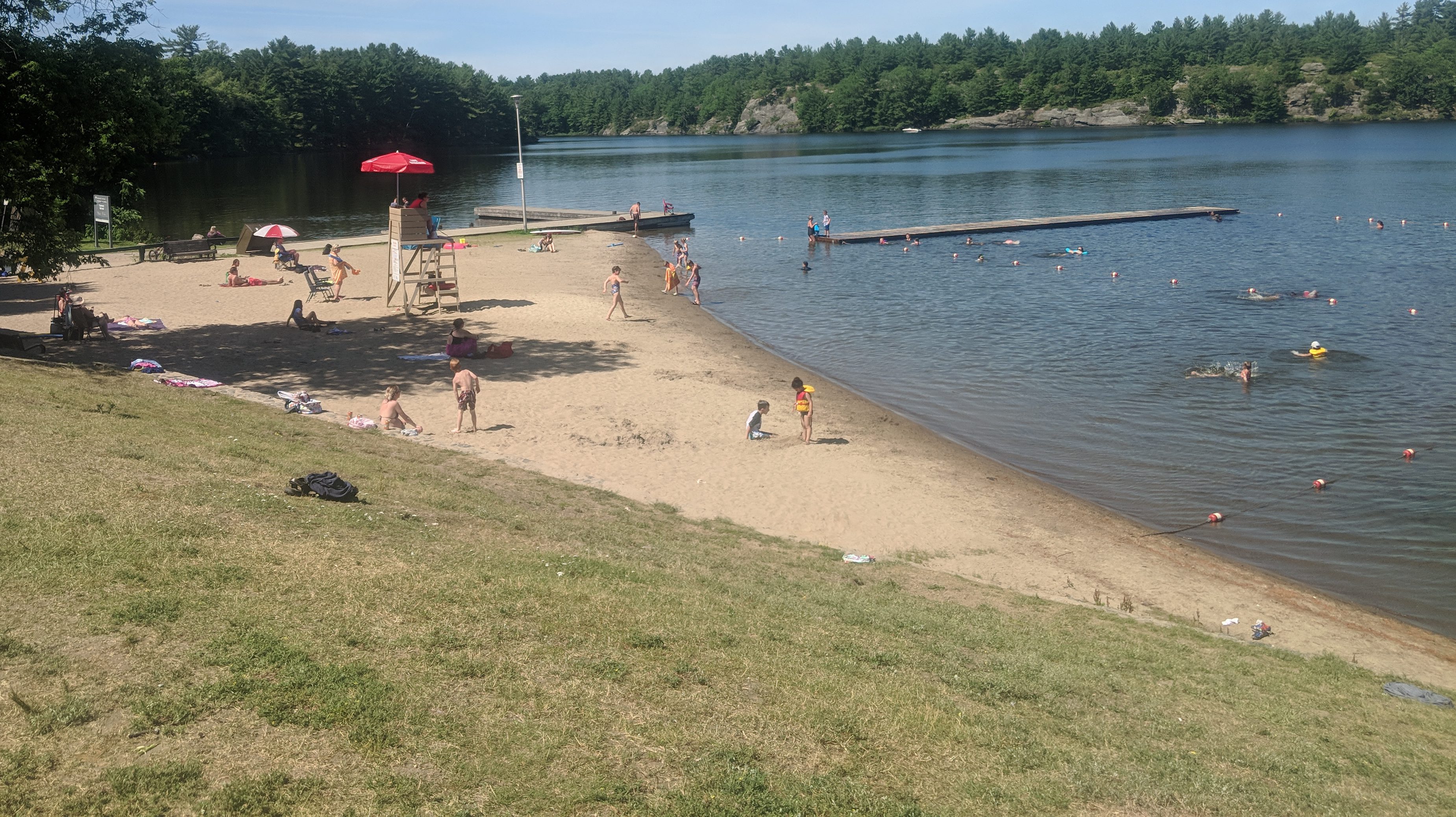GRAVENHURST, ON – The frequent swim advisories being posted for Gull Lake Rotary Park are easily explained says the Simcoe Muskoka District Health Unit.
There have been seven swim advisories this summer so far for the popular beach in Gravenhurst. But according to Safe Water Manager Christina Weider of the health unit, it is largely down to frequent rain and also waterfowl making the water foul.
“Definitely Gull Lake has had an increase in advisories this year,” Weider concurred. “Rain has to be the biggest factor that impacts beach water quality because rain will wash contaminants into the lake.”
Pet waste and feces from birds and geese contribute to the e.coli count that has seen swimmers warned almost every other week about possible sickness and skin irritation if they go for a dip at the beach on Gull Lake.
Weider notes that an advisory is just that, advising swimmers of the conditions, but it is not a beach closure.
She says the frequency of the rain is not as important as how much rain. A small shower will not carry as much wastewater into Gull Lake as a large storm.
“When we have heavy rainfalls it tends to wash everything into the water,” she explained. “You don’t have that natural filtration process that will happen at the beach level so it gets right to the water.”
She said at the end of the summer the data will be reviewed to see how conditions and the amount of rainfall tied into creating swim advisories.
The simple act of feeding ducks is a big contributor as well said Weider. While it may seem like an innocent and idyllic activity to throw bread crumbs to the eager creatures, their presence in the water so close to where swimmers are active, makes for increased contamination possibilities.
“Definitely we don’t want to be feeding the ducks at the beach,” she explained. “It’s more than they are a nuisance but they can also defecate and their feces do have a significant amount of e.coli in it.”
While testing is done on Mondays, there is a 24 time period before results come back. A rule of thumb is to avoid the water in the day or two following a heavy rainfall. Testing is redone when a swim advisory has been issued so that people can get back in the water as quick as possible.
The good news from an engineering perspective is that no septic systems are leaching into the water says Matt Farrow, Septic Inspector for the Town of Gravenhurst.
He notes significant setbacks are the law, in part to put a barrier in place between septic systems and the lake.



